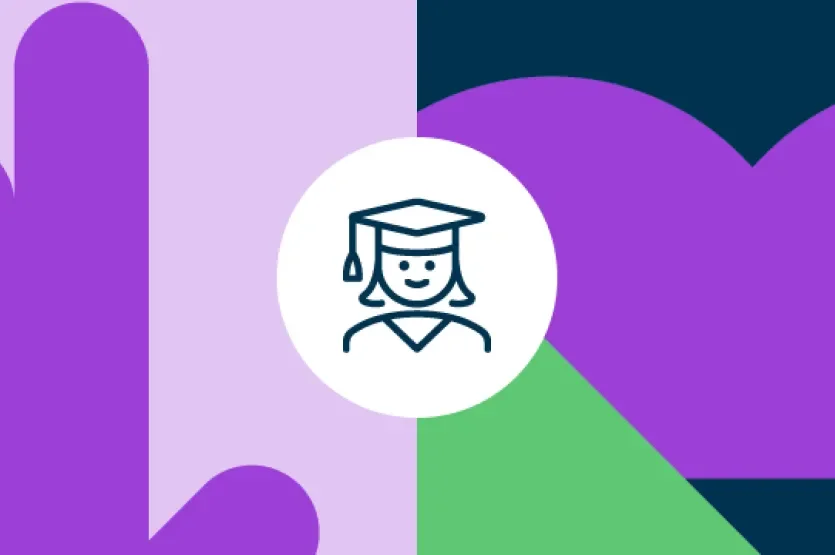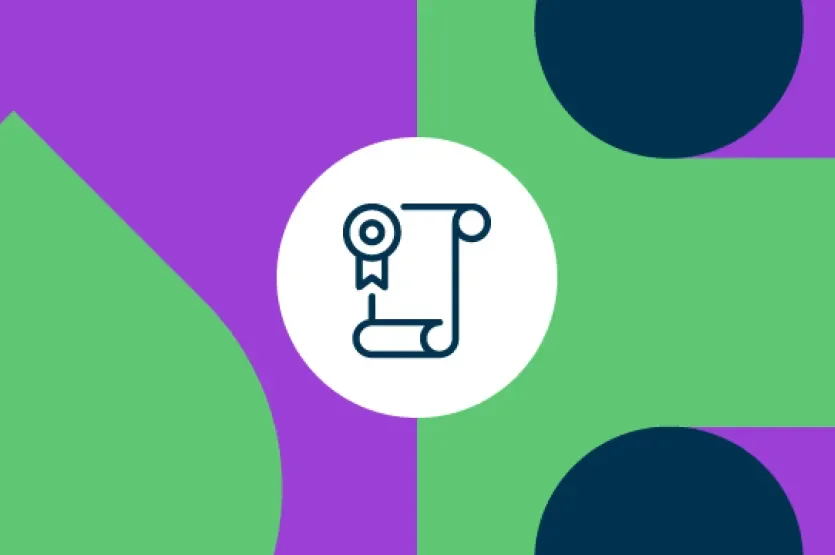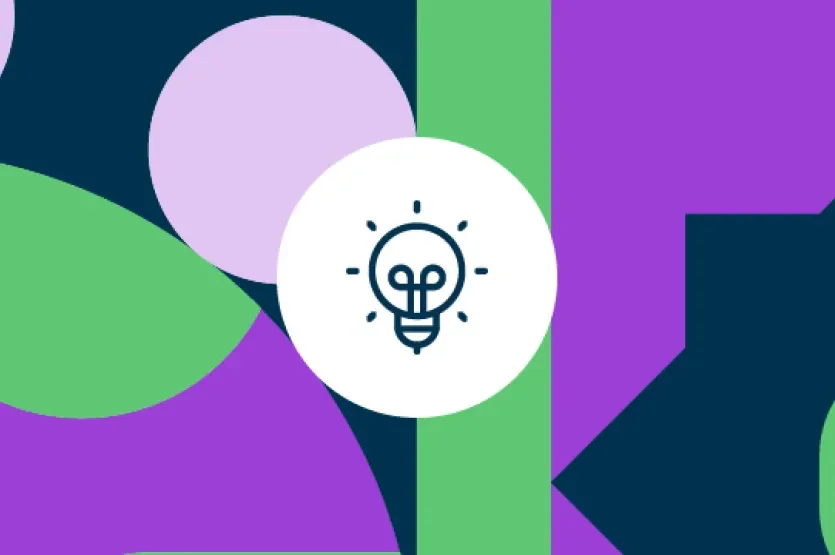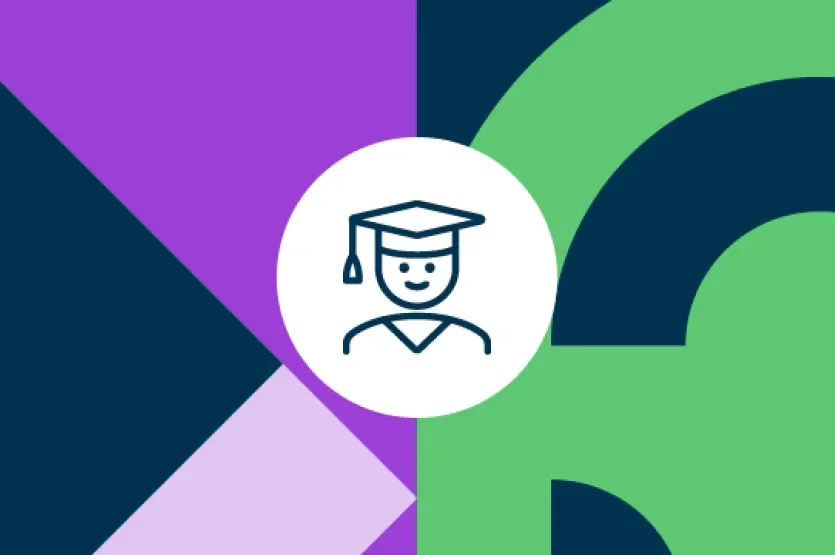Overview
This programme gives students a deep understanding of the theories of learning and philosophies of education, and will benefit from studying with students from a range of workplace contexts.
During this two-year, part-time programme you'll have the opportunity to reflect on your current professional practice, gain skills to spearhead innovative pedagogical practices and master the use of multimedia for captivating content creation. Additionally, the programme will deepen your understanding of organisational culture and equip you with various strategies for effective change management.
Collaborate and network with other students
Using a hybrid approach, the modules are offered both face-to-face and through digital platforms, complemented by social networking events where you can engage in discussions and exchange insights with fellow students. In the programme's second year, you'll also undertake a research dissertation to delve deeper into an area that interests you.
Once you graduate, you can use your newfound knowledge to build your own career or pursue management roles in eLearning, multimedia and education. Alternatively, you’ll also have the skills to set up your own online education company.
Why DCU
DCU People
Careers & Further Options
Careers
This programme offers students an opportunity to advance their career in the education or training environment, to improve leadership and eLearning skills, or to switch to a new career in eLearning, training management, leadership or elsewhere in education.
This programme offers the opportunity to:
- Develop a practitioner researcher approach to the creative design, development, and evaluation of multimedia and technology for learning in a range of work contexts
- Further develop yourself as a teacher, lecturer, leader
- Conduct research in technology and learning
- Advance your career as a researcher and contribute to research and innovation projects
- Impact the change in your organisation
- Contribute to policy, practice and theory
"DCU graduates are highly sought after by employers. Our Graduates work in environments ranging from large multinationals to SMEs, family businesses and start-ups across every sector.
DCU Careers Service has a number of learning and development initiatives in place for our students, giving them the skills they need for a successful career path."
Entry Requirements
Applicants must have a good honours degree (minimum 2.2) with three years substantial experience working in a recognised education/training environment.
In certain circumstances, applicants not possessing the above qualifications may be considered if they are able to present, at interview, evidence of professional experience and responsibility in a relevant area of work, and high-level interest in the research literature relevant to one of the themes highlighted in the programme. Such applicants will be required to submit a written assignment or portfolio prior to interview.
Candidates should note that an interview is part of the selection process for this programme. Shortlisted candidates are expected to be available for interview. Interview slots will be allocated on a first come, first served basis. It is not possible to accommodate other interview dates.
Due to the specialist nature of this programme, additional criteria may be used to assess suitability to undertake this programme. For further information, please contact the Programme Chair using the contact details above.
• Recognition of Prior Learning (RPL) applicants are required to submit a cover letter along with their application under the Transcripts section of the portal, affirming their intent to apply for RPL. For more information on RPL see here.
Queries on Completed Applications
Queries on completed applications can be made by e-mail to postgraduateadmissions@dcu.ie.
Programme Structure
The Masters in Education and Training Management (eLearning) is offered through a blended approach whereby participants benefit from synchronous web conferencing and face-to-face settings.
A defining aspect of the programme is learning together as participants are encouraged to collaboratively reflect on and share their learning through a range of activities and social networking.
The programme is a two-year part-time programme, starting in late September.
The Graduate Diploma element of the programme consists of six modules and runs over three semesters. The programme takes place on scheduled Wednesday evenings from 6.30-8.30pm (online) and on scheduled weekends (face-to-face).
The dissertation element of the MSc programme is a piece of independent research. The dissertation is researched and written in the second year of the programme (January - end of June).
Within the e-Learning programme there are two options that satisfy the dissertation requirement. Students can carry out applied research which consists of a written piece of 15,000-20,000 words or a creative piece, which consists of the creation of an educational video or online training/educational resources that supports and enhances learning, and a written component.
Through the course of the programme, students examine philosophies of education, theories of learning, developments in neuroscience, and culture and organisations. They gain skills and knowledge in the effective design and use of collaboration learning technologies, authoring tools and videography. In addition, they are encouraged to creatively design and integrate technology to enhance their workplace practice.
The programme is delivered by a team of academics and practising experts with applied experience in eLearning, Learning and Leadership.
Students come from a range of backgrounds and so contribute to a breadth of experience and a dynamic learning environment.
Students are also invited to participate in European and international eLearning research activities organised by the International Centre for Innovation and Workplace Learning at DCU. This provides opportunities for course participants to gain international experience and develop their eLearning skillset.
Fees and Funding
Fees
How To Apply
All Applicants must apply through DCU's Student Application Portal which is available here. Here's a quick step by step guide if you need help with your application.
• Provide certified academic transcripts for all years of study at college or university in original language*, with certified English translations if applicable.
• Provide a copy of passport.
• Provide a personal statement of 500 words, outlining your reasons for applying.
• Where an applicant is in their final year of their undergraduate degree, please submit certified transcripts for all years completed to date.
International candidates are expected to have educational qualifications of a standard equivalent to those outlined above. In addition to the above, where such candidates are non-native speakers of the English language they must satisfy the university of their competency in the English language which meets DCU entry requirements. Please see link https://www.dcu.ie/registry/english-language-requirements-non-native-speakers-english-registry
If you require a study visa and are a Non EU student, you are not eligible to apply for part-time programmes as study visas are only granted for full-time programmes.
Dates for Submission of Applications
Applications will be accepted on a rolling basis until the programme is full or until the following date:
- Closing date for EU Applicants is 31st July 2025. Please apply using - Part-time (E-Learning strand)
- Closing date for non EU Applicants is 30th June 2025.
All entry requirements should be met before the commencement of the programme.
Application Queries
For EU applicant queries, please visit https://www.dcu.ie/registry/eu-postgraduate-taught-admissions or email postgraduateadmissions@dcu.ie
For non EU applicant queries, please visit https://www.dcu.ie/registry/international-admissions-undergraduate-and-postgraduate or email internationaladmissions@dcu.ie
Commencement of Programme
The programme commences in September 2025.
Life On Campus
At DCU, our students can expect a unique campus experience. We are known for our excellent teaching and learning facilities, our active clubs and societies, and our great social and sporting facilities. All this makes DCU an exciting place to be.
DCU has three academic campuses; Glasnevin, St. Patrick’s and All Hallows (both in Drumcondra), all close to Dublin City centre.
They can be reached by public transport, Dublin Bus and Bus Éireann, with our Drumcondra campuses a ten minute walk from Drumcondra Train Station. Glasnevin is a 20 minute walk from St Patrick’s and All Hallows. They are also linked by Dublin Bus.
Each campus has a library (O’Reilly, Cregan and Woodlock Hall), study spaces, restaurants, and on-campus residencies. There are sports facilities on Glasnevin and St. Patrick’s, and there is a dedicated sports campus, St Claire’s, located near Glasnevin on the Ballymun Road.
DCU’s 19,000 students have access to exceptional teaching and learning facilities across our three academic campuses.
These include modern learning theatres, research centres, a new media and TV studio, radio/podcast studios, computer suites and advanced labs in the areas of Languages, Engineering, Physics, Chemistry and Biotechnology, as well as a Sports Performance centre and a training hospital ward. In 2021, we opened our first virtual reality ‘Leadership Lab’, which is located in our Business School.
We continue to improve and update our facilities. For example, construction of a new world-class STEM facility is underway on the Glasnevin campus. With capacity for an extra 3,000 STEM students, this facility will advance DCU’s international reputation for excellence in science and health, computing and engineering disciplines.
Studying in DCU isn’t just about course work. The university is rich in student life and activities.
There are more than 140 clubs and societies for students in DCU, with ‘Clubs & Socs’ days taking place on both the Glasnevin and Drumcondra campuses at the start of the academic year. They span everything from rugby to rock climbing, anime to jazz.
For many students, sport is an important part of the DCU experience. DCU’s Sports Complex boasts a 25 metre swimming pool, fitness centre gym, all-weather pitches and squash courts, as well as soccer, GAA and rugby pitches. DCU Dóchas Éireann, the university’s GAA club, is the largest third level Gaelic Games club in the country. Meanwhile, DCU Athletics has been Ireland’s highest achieving university club for many years. And DCU has dozens of other clubs to get involved in, from Archery to Weightlifting.
The Glasnevin campus is home to our purpose built, state-of-the-art student centre, The U, which serves the needs of a rapidly growing student body. Here, you will find the Student Leadership and Lifeskills Centre, performing arts and cultural spaces for students and the wider community, and the Entrepreneurship and Innovation Hub. Also located on our Glasnevin campus is The Helix, our renowned performing arts centre.
On our St Patrick’s campus, we have the Java Student Hub, a vibrant, warm and welcoming space where students can meet for coffee, play music, use the projector to watch events, or just relax. The walls of the Java Hub were designed based on the cultural history of St Patrick’s Campus, including the special references to the notable sporting history and history of the arts.
We have a number of academic, professional and social supports for students.
Student Advice & Learning Skills Centre - Offers a wide range of supports and services to students and advice
The Writing Centre - drop-in writing workshops for students through the academic year
Maths Learning Centre - provides maths support for students of all ability levels with maths modules
Student Learning - facilitate the transition from passive to active learning for students at DCU, by teaching study skills, nurturing critical thinking and building student confidence.
Careers work with students to help them on their professional journey into graduate employment.
Our student support team offers a comprehensive support programme, helping students make that all important transition into university life and focusing on building confidence and skills which are key to success at third level.
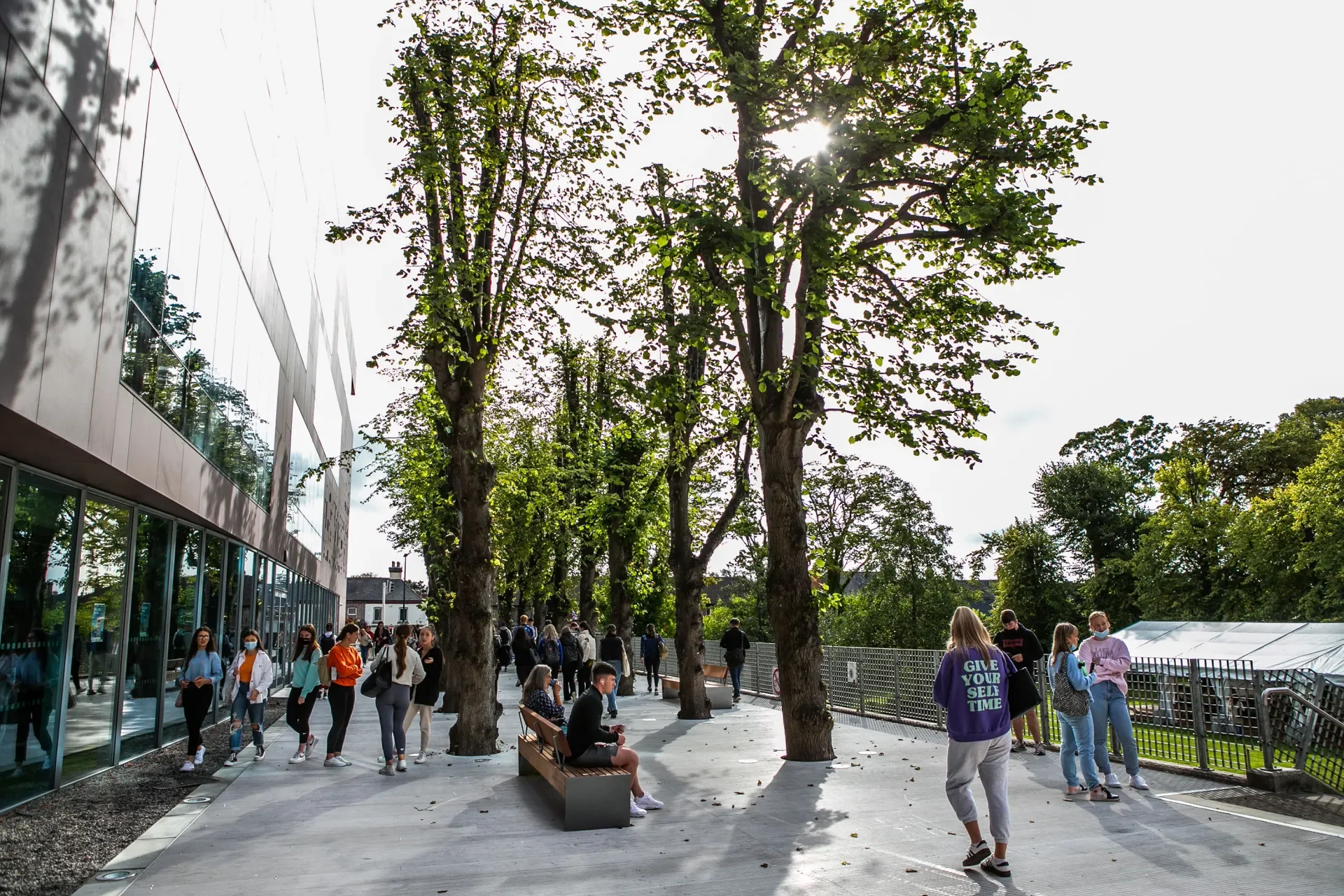
DCU St Patrick's Campus
FAQs
What courses are offered by the DCU Institute of Education?
DCU Institute of Education brings together students of education and provides a rich menu of undergraduate courses across all sectors from early childhood, to primary and post-primary and further and higher education. We offer a range of taught and research postgraduate courses at doctoral, masters, diploma and certificate level and have a distinguished record in providing continuing professional development.
Is there Garda vetting for students who study DCU Institute of Education courses?
Garda vetting is required for all students who have unsupervised access to children and vulnerable adults as part of their studies at DCU. Applicants must successfully pass the Garda vetting process in order to complete the registration process.
What are the potential teaching pathways for primary, post-primary and further education and training offered by DCU?
Primary Teaching Pathways
Undergraduate*
Postgraduate**
- Professional Master of Education (Primary Teaching) - DC970
* Please ensure that you consult minimum entry requirements and CAO points for all undergraduate programmes
** Please ensure that you consult minimum entry requirements for all postgraduate programmes
Post-Primary Teaching Pathways
Undergraduate*
- Bachelor of Religious Education & English or History or Music - DC010 | DC011 | DC012
- Bachelor of Education in Gaeilge and French or German or Spanish - DC013
- Bachelor of Education in Technology, Engineering and Graphics - DC015
- Bachelor of Science (Hons) in Science Education - DC203
- Bachelor of Science (Hons) in Physical Education with Biology - DC205
- Bachelor of Science in Physical Education with Mathematics - DC206
Postgraduate**
- Professional Master of Education (Post-Primary Teaching) - DC905
* Please ensure that you consult minimum entry requirements and CAO points for all undergraduate programmes
** Please ensure that you consult minimum entry requirements for all postgraduate programmes
Further Education and Training Teaching Pathways
Undergraduate*
- BSc (Hons) in Education and Training (Further, Adult and Continuing Education) - DC235
* Please ensure that you consult minimum entry requirements and CAO points for all undergraduate programmes



